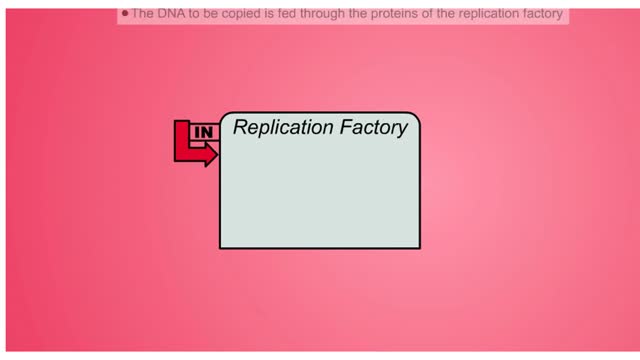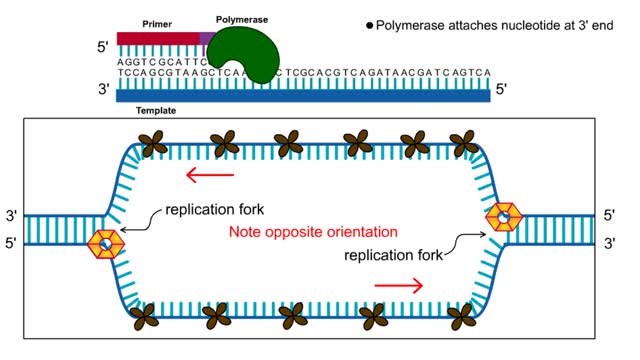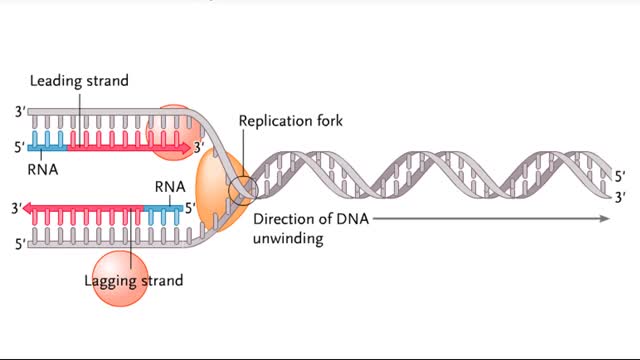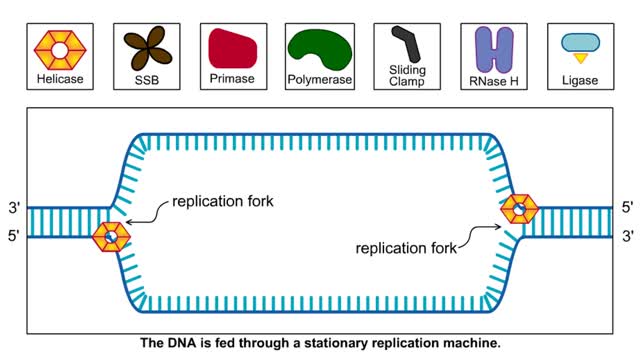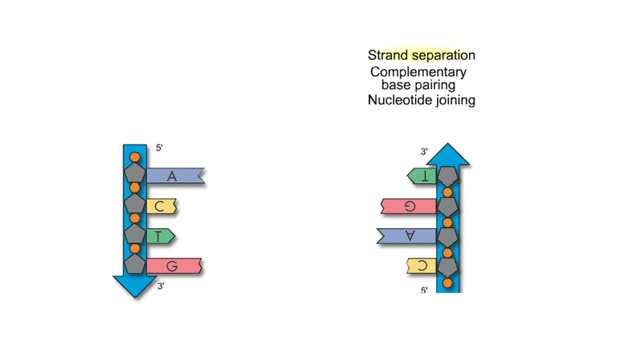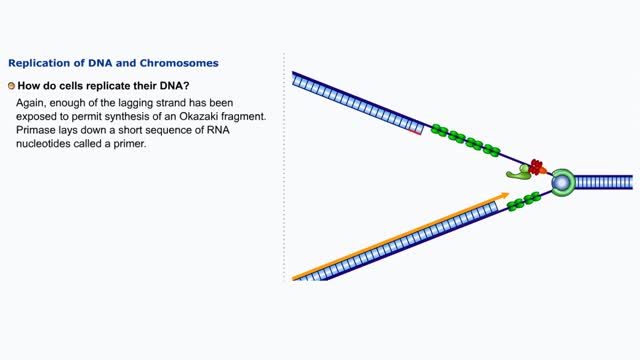Search Results
Results for: 'helicase'
DNA Replication Factory and Protein
By: HWC, Views: 10633
DNA (deoxyribose nucleic acid) carries all the genetic information needed to re-create itself and to pass on the characteristics of the organism. The “factory” model of DNA replication hypothesizes a specific nuclear structure in which the molecular machinery for replication forks are brou...
By: HWC, Views: 10439
First step: strands are separated • Helicase unwinds the DNA double helix at the replication fork • SSBs coat the single strands to prevent reannealing • Polymerase attaches nucleotide at 3' end • Synthesis is in 5' to 3' direction DNA Polymerase: • Only extends nucleic ac...
Semidiscontinuous DNA replication
By: HWC, Views: 10830
During DNA replication, one of the two DNA strands, the leading strand, is replicated continuously, or all at once, in the 5' to 3' direction. The other strand, called the lagging strand, is replicated discontinuously, or in pieces, in the 3' to 5' direction. This is necessary because DNA poly...
The Lagging Strand in DNA Replication and Replication in Action
By: HWC, Views: 10513
The lagging strand is the strand of nascent DNA whose direction of synthesis is opposite to the direction of the growing replication fork. DNA backbones run in opposite directions, the strands in a DNA molecule are oriented antiparallel to one another. New DNA is made by enzymes called DNA...
Subunits of DNA And Semi Conservative Replication
By: HWC, Views: 7353
Adenine is a purine with a double-ring structure. In double-stranded DNA, adenine base-pairs with thymine. Guanine is a purine with a double-ring structure. In double-stranded DNA, guanine base-pairs with cytosine. Thymine is a pyrimidine with a single-ring structure. In double-stranded DNA, th...
Replication of DNA and Chromosomes/ How do cells replicate their DNA? (Animation) no Audio
By: HWC, Views: 10897
DNA replication in E. coil begins at a site called oriC where a replication bubble forms. At either end of this bubble is a replication fork. Since DNA polymerase Ill can read its DNA template strand only in the 3' to 5' direction this means that one strand (leading) can be read continuously b...
Advertisement



